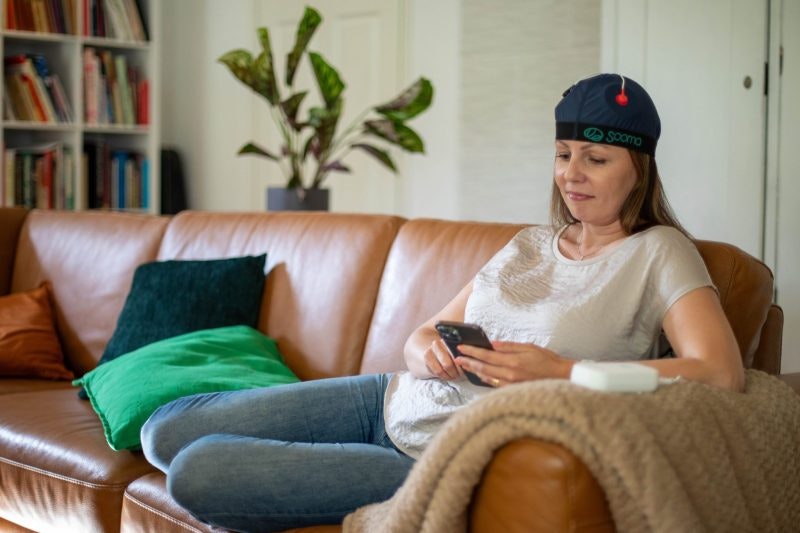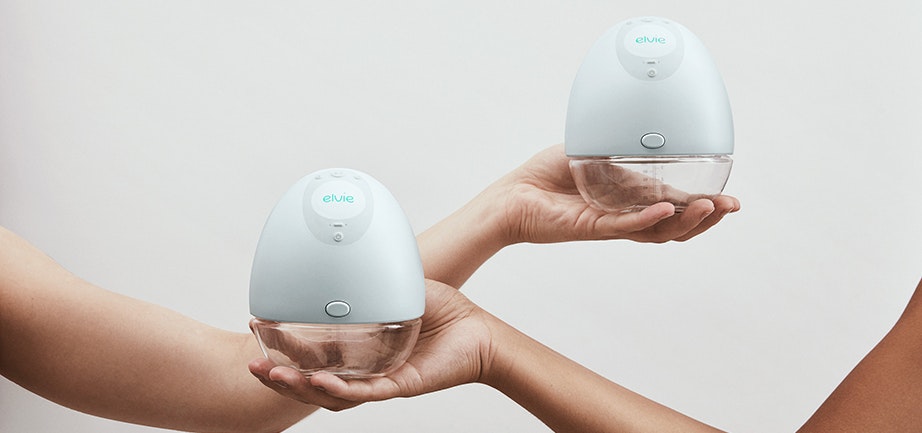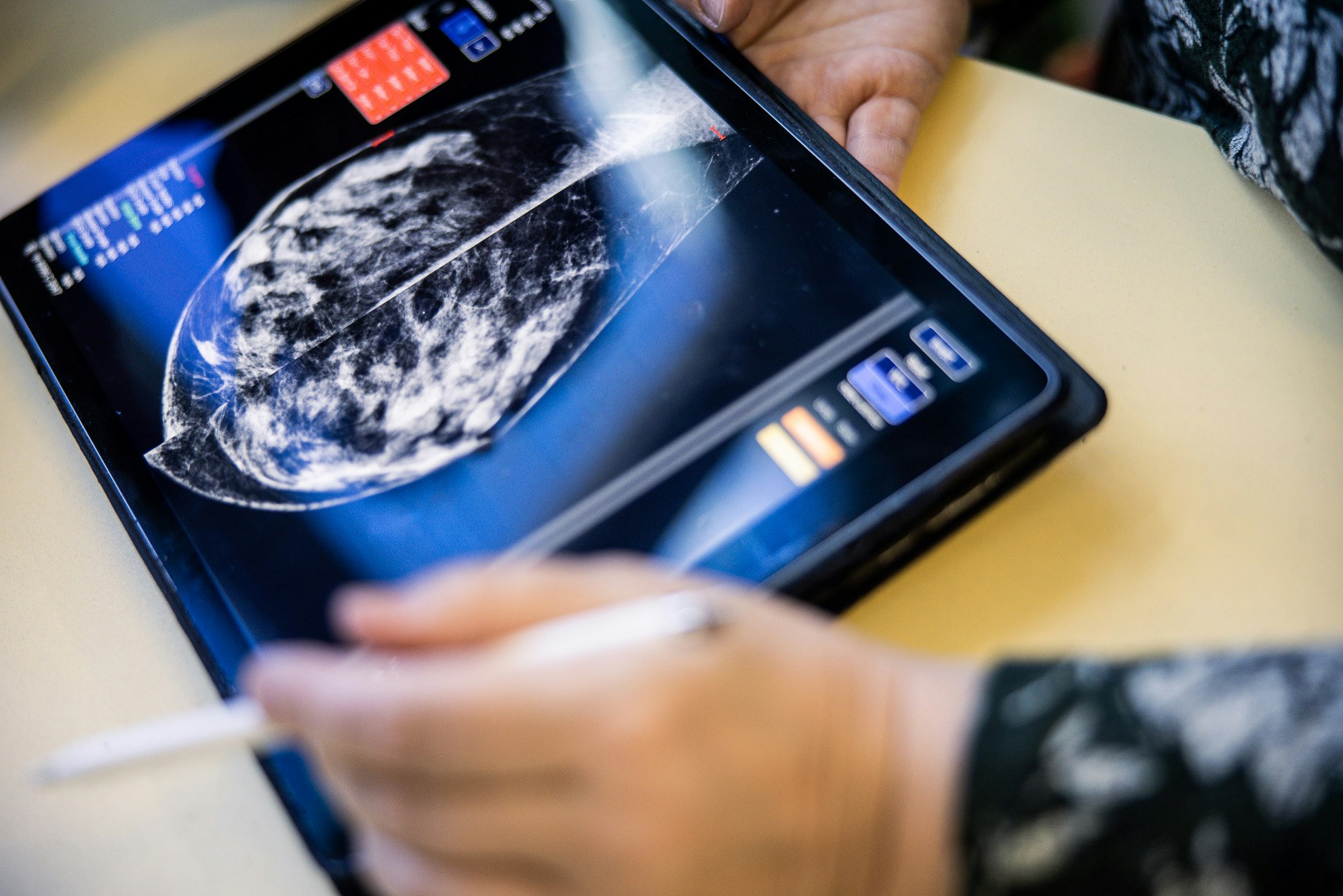A mental health crisis has been sweeping across Europe in the past two decades. In that time, the use of antidepressants in Europe has more than doubled, costing governments hundreds of millions each year, according to the OECD.
But a small group of startups are pioneering a novel type of depression treatment that could help tackle the problem: a technique known as transcranial direct current stimulation (tDCS).
One of them, Finland-based Sooma, has developed a wearable cap which transmits weak electric currents to the brain.
The startup has just raised €5m as it looks to roll out its medical device across Europe and the US. The latest funding round was led by Finland's Voima Ventures, with participation from Singapore’s Verge HealthTech Fund and Helsinki-based family office Stephen Industries.
Sooma’s treatment can work faster than traditional treatments for depression like antidepressants, bringing down the cost to healthcare providers, according to cofounder and CEO Tuomas Neuvonen.
Treating depression with electrical currents
Founded in 2013, the company’s tDCS treatment delivers an electrical current to the brain via two electrodes built into a wearable cap. While patients will feel a slight tingling when wearing the cap, it’s not painful, says Neuvonen.
Treatment lasts for 30 minutes, once a day, for as little as four to six weeks for milder forms of depression. Sufferers of more severe depression and those with chronic problems can use the treatment for years.

“Key areas of the brain affected by depression are found in the dorsolateral prefrontal cortex (DLPFC),” says Neuvonen. “For depressed patients, the left DLPFC experiences reduced activity, while the right DLPFC is overactive.”
By administering a mild current through two electrodes inside the head cap, Sooma can stimulate activity near the left electrode while reducing the activity near the right one, reducing depressive symptoms, he tells Sifted.
“Repeated stimulations evoke ‘neuroplasticity’, allowing the necessary long-term functional and structural changes in the neuronal networks that can alleviate the symptoms of neurological and psychiatric disorders,” says Neuvonen.
The startup has also developed an app which patients and clinicians can use to log and track symptoms.
While treating neurological conditions with electricity isn’t new — physicians in ancient Egypt used electric fish to treat headaches and what they called “melancholy” — it’s only in the past two decades that clinical evidence for tDCS has been building, says Neuvonen.
Funding expansion
Since being founded, Sooma gained regulatory approval in Europe in 2014 to sell its device to healthcare providers and gained FDA Breakthrough Device Designation in 2023, which means it can begin to run clinical trials in the US — the first step in expanding to the country.
And growing its footprint, both in Europe and stateside, is at the top of Sooma’s minds.
The Finnish startup is looking to expand into two more European countries as it aims to increase the number of people who can access its medical device.
While Neuvonen is coy about exactly which countries they’ll look to next offer their services in, he tells Sifted that Sooma has small teams in France and Germany and will be looking to expand them. Overall, it aims to grow its team of 20 by about 50% in the next 12 months.
Sooma has over 20k global patients using its wearable cap — and the startup wants to treat another 10k by the end of 2024.
While it also sells its medical device in other markets like Australia and Mexico via private healthcare providers, Sooma’s focus with the fresh capital is gaining FDA approval in the US.
The first step is completing clinical trials in the country, which will take up a “substantial part of the funding” and typically cost north than €1m, says Neuvonen. If all goes to plan, Sooma hopes to be selling its product in the US by late 2025, he adds.Sooma sells directly to clinicians and healthcare providers, which typically costs around €300 for a course of treatment, depending on the market.
The startup’s core markets are currently Finland and Estonia — the only two countries in Europe where tDCS can be prescribed via public healthcare — which account for around 70-80% of its revenues, Neuvonen tells Sifted.
Sooma isn’t, however, the only startup working on tDCS treatments for depression. There’s also Sweden’s Flow Neuroscience, which has raised $11.9m, and US-based Soterix Medical, which has picked up $14m in grants.
But there are risks to Sooma’s expansion plans. Neovonen tells Sifted “healthcare systems are financially restrained,” meaning that it's more of a challenge to convince them to invest in novel therapeutics.
But “studies show that every Euro invested in mental health pays back tech by four times,” he says. “We offer a cost effective solution and we’ve shown we can reduce spending on mental health with our product.”


